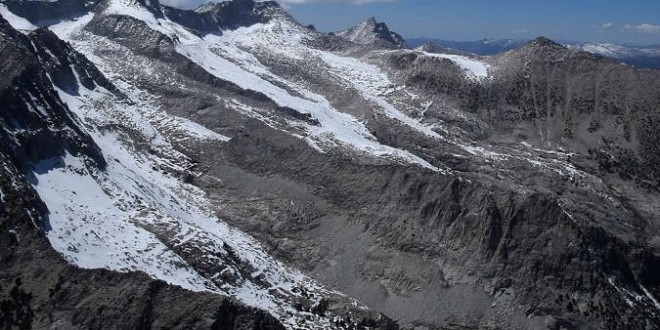The Sierra Nevada snowpack that is a critical water source for California fell to a 500-year low last winter – far worse than scientists had estimated and underlining the severity of the current drought, according to new research.
For the study, published in the journal Nature Climate Change, researchers compared the snowpack on April 1 with estimates from the last 500 years derived from tree ring studies. Tree rings provide a window into the climate of centuries past, expanding during warm periods and decreasing in size during cold periods. Of course, higher temperatures prevent precipitation from landing as snowfall and keep snow from accumulating.
“We were expecting that 2015 would be extreme, but not like this,” senior study author Valerie Trouet, a paleoclimatologist at the University of Arizona, told the Los Angeles Times.
Policymakers and scientists have recognized the severity of low snowpack for months. California Governor Jerry Brown used a snowless meadow in the mountains as the backdrop to announce new water restrictions in April. On average, more than five feet of snow has covered the meadow at that point over the past 70 years, according to the California Department of Water Resources (DWR). Overall, the DWR said water levels were at 5% of the historic average.
Snowfall in the Sierra Nevada mountain range plays an important role providing water for the entire state. And, while many in the state are hopeful that El Niño will bring some drought relief, the climate phenomenon is unlikely to fall north enough to bring relief to the range.
Agencies/Canadajournal
 Canada Journal – News of the World Articles and videos to bring you the biggest Canadian news stories from across the country every day
Canada Journal – News of the World Articles and videos to bring you the biggest Canadian news stories from across the country every day



